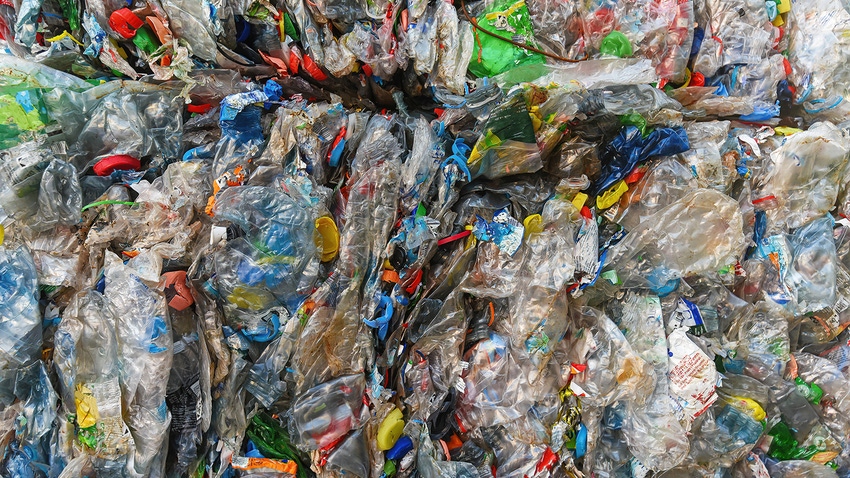Chemical Recycling of Plastics Continues to Gain Ground
Eastman picks Texas for its second molecular recycling plant in the United States, and capacity in Europe is set to more than triple by 2027.
March 27, 2024

At a Glance
- Eastman begins negotiations to receive up to $375 million in funding from US Department of Energy
- Wyoming adopts legislation that regulates advanced recycling facilities as manufacturing operations
- Expert calls into question the amount of energy that chemical recycling consumes
Despite lingering questions about the economic viability of chemical recycling, aka advanced recycling, and its potential health and environmental risks, the technology continues to make progress in the United States and globally. The most recent milestone was reached at the start of this week when Eastman announced that it was selected by the US Department of Energy (DOE) to begin award negotiations for up to $375 million in funding, which coincided with Eastman’s reveal that it plans to build its second US molecular recycling facility in Longview, TX.
The Texas facility will have the capacity to recycle approximately 110,000 metric tonnes of hard-to-recycle plastic waste, according to Eastman, and is expected to generate more than 200 full-time jobs in addition to approximately 1,000 temporary construction jobs. Eastman said it has operated in the Longview community for more than 70 years and currently has over 1,500 employees at the location.
Eastman’s first molecular recycling facility (featured in the video below) at its Kingsport, TN, headquarters was recently completed and is reportedly achieving on-spec initial production and generating revenue, the company announced last week. Production will ramp up over the coming months.
Decarbonized production
The planned project in Longview was selected by the DOE to accelerate the demonstration of industry-leading low-carbon-intensity recycled PET. By reaching a collaborative agreement with the DOE, Eastman said it is able to expand the project to include deployment of thermal heat batteries and onsite solar power. Combined with Eastman's advanced recycling technology, this initiative will achieve a step-change improvement in decarbonizing PET production, resulting in recycled PET with greater than 70% reduced carbon emissions compared with fossil virgin production, and approximately 90% fewer carbon emissions when including avoided emissions, according to Eastman.
Eastman is one of 33 companies selected by the DOE to begin award negotiations related to Bipartisan Infrastructure Law and Inflation Reduction Act funding as part of the Industrial Demonstrations Program (IDP). Eastman also received state and local tax incentives in support of the project totaling approximately $70 million.
Eastman's molecular recycling technology breaks down hard-to-recycle plastic waste into its molecular building blocks, which are reassembled into virgin-quality material without compromising performance. The technique has the potential to enable infinite reuse by keeping these molecules in production in a material-to-material high-yield loop, according to Eastman.
Eastman is also building a molecular recycling plant in France that carries a billion-dollar price tag. Eastman CEO Mark Costa and French President Emmanuel Macron jointly announced the project in January 2022. At the time of the announcement, Eastman said it would be the largest advanced recycling facility in the world.
Wyoming welcomes advanced recycling
Also making news recently in advanced recycling, Wyoming became the 25th state to adopt legislation that requires advanced recycling facilities to be transparently and properly regulated as manufacturing operations. Naming them manufacturing operations as opposed to solid-waste processing plants is an important distinction, as it can have a regulatory and financial impact.
The American Chemistry Council (ACC) applauded passage of SF 80, noting that with it fully one-half of the country is welcoming “innovative recycling technologies that allow plastics to be remade, again and again.”
“Keeping used plastic out of landfills and out of the environment is important to our industry, which is building an economic model that places value in remaking them into new products,” said Ross Eisenberg, president of America’s Plastic Makers, part of ACC. “The regulatory certainty provided now in Wyoming encourages investments by businesses to build these facilities, which can easily exceed $200 million in capital costs.”
SF 80 establishes these technologies remain subject to applicable manufacturing regulations and applies a regulatory framework for advanced recycling facilities that welcomes future investment in Wyoming, said the ACC.
Advanced recycling is also having a moment across the pond. Recently published research from nova-Institut forecasts that advanced recycling capacity in Europe will more than triple by 2027. The report maps more than 340 planned and installed advanced recycling plants worldwide, the majority of which are in Europe.
Energy use and chemical recycling do not compute
All of this forward momentum comes despite some well-reasoned critiques of the technology. In a recent column in PlasticsToday, “Chemical Recycling Just Isn’t Feasible,” plastics industry veteran turned professor John Spevacek calls into question the amount of energy that chemical recycling consumes. “From an energy perspective, the whole idea of taking plastics, breaking them down into their components and then making the same plastics from them is fundamentally unsound. The polymerization and pyrolysis reactions are opposites of each other, and the second law of thermodynamics is clear that it will always take more energy to move in one direction than the other. You can’t go around this cycle without investing more energy each time,” argues Spevacek.
Meanwhile activist groups such as Beyond Plastics call chemical recycling’s contribution to the circular economy “snake oil.” In a recent report, the group concluded that chemical recycling produces large quantities of hazardous waste, releases toxic air pollution, threatens environmental justice (because many US facilities reportedly are located in low-income areas and communities of color), and contributes to climate change.
So, chemical recycling: Yay or nay? I guess we’re going to find out in real time.
About the Author(s)
You May Also Like




